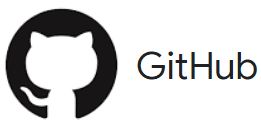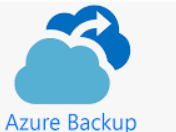- IT News
- How to do it ?
- Surface Calculator
- Volume Calculator
- Simple Calculator
- Scientific Calculator
- Annulus Calculator
- Border radius
- Box shadow
- Transform
- Data conversion
- Easy Unit Converter
- Image compressor
- File compressor
- RGB Color picker
- Play games online

Download Software
- IDE & Programming languages
- Network & Internet
- Operating system
- Graphics
- Android & iOS
- Radio & TV
- Antivirus and Security
- Chat Software
- Utility
- Video
- Audio
- PC Games
Track your changes with the best versioning software | |
| In any company, it is important to archive the various modifications made to a file in order to be able to view them at any time. | |
| But how do you keep track of the various changes made? | |
| For this, developers use versioning software or version control software. These tools are essential for keeping the timeline of all the changes that have been made to a file. | |
| Are you lost among all the proposed solutions? | |
| Are you wondering which is better between a distributed or a centralized version ? | |
| Discover through this article what a version control tool really is as well as the best solutions on the market. | |
Versioning, what is it? | |
Versioning tools, a valuable archive for developers | |
| Before getting to the heart of the matter and revealing to you what the different versioning solutions are, discover the usefulness of this type of software. | |
| Version control software, sometimes called VCS for Version Control System, is a tool that records, tracks, and manages multiple versions of a file or source code. It serves as a history grouping together the modifications made, the date and time of the backup and allows you to recover an earlier version in the event of an error or a problem on a current version. | |
| Version management tools have 2 main purposes: | |
| Keep track of updates and changes to versions of an application or software, | |
| Optimize collaborative work with the management of several source code versions. | |
| The versioning tool can sometimes be called SCM (Source Control Management) and is more of a source code management system. These are software used to manage the different versions of the source files. | |
Centralized vs Distributed Version Management | |
| Centralized repository | |
| Here, the system is hosted locally and offers a single directory for all users. This system prevents multiple users from modifying a file at the same time. It is the first user who opens the file who alone can make changes. | |
| This type of centralized management provides advantages in terms of reliability , but also disadvantages because of the impossibility of exchanges between repositories and between local copies. | |
| Distributed repository | |
| In the case of a distributed system and unlike centralized management, the developers have their own repositories and their own local copy. Here, each developer can work at their own pace on their local repository. | |
| The advantages of this management system are numerous: | |
| Possible to work offline , | |
| More security via the existence of several repositories, | |
| Communication between repositories and the ability to clone them and then read and write from one repository to another. | |
Our selection criteria | |
| To present this selection of software, we relied on several criteria: | |
| Centralization : As mentioned above, some software is distributed , and allows teleworking while others offer a centralized system and then require a connection to the local server ; | |
| Storage space : This type of tool must keep all modified files, it is therefore necessary that the chosen tool offers unlimited storage space; | |
| Updating : The software must ensure regular updating and take into account real-time file modifications to avoid repetitive work and loss of time ; | |
| The cost : The price of a versioning tool varies according to several criteria (its functionalities, its performance, its speed in carrying out the tasks, etc.). | |
List of the Best Version Control Software | |
 | |
| GitLab is a Distributed version control tool . With GitLab, developers can simultaneously edit source code, make changes, and have an overview of all changes made. | |
Strong points | |
| Free hosting possible on a private server, | |
| Free continuous integration, | |
| Interface adaptable to the size of your screen, | |
| Integrated development environment. | |
 | |
| GitHub is the best-known distributed version control system on the market . The tool acquired by Microsoft in 2018 is particularly appreciated by developers working on open source software. | |
Strong points | |
| Huge user base, | |
| Personal dashboard to track issues and pull requests, | |
| Creation of several independent “local branches”, | |
| Collaboration features (assignment of tasks, permissions, roles, etc.). | |
 | |
| SVN The successor of CVS designed by CollabNet, is one of the most used version control (or versioning) systems in the world, offering a valid, efficient and secure alternative to systems such as Git or Mercurial | |
| SVN uses a central management control system, This means that there is a folder (repository) that all users can access | |
 | |
| Bitbucket is a version control system (VCS) aimed at optimizing the management of IT development projects. Bitbucket is more than just a centralized code management tool: developers have a single place to plan projects, collaborate on code, test, and deploy. | |
Strong points | |
| Unlimited free private deposits, | |
| Designed for collaboration, | |
| Integrates with many tools (jira, slack, MS teams, etc.), | |
| Enhanced security through data encryption. | |
 | |
| Microsoft Azure Backup , is a version control system from Microsoft . Previously known as Team Foundation Server (TFS), it offers an on-premises hosted set of development tools. | |
Strong points | |
| Allows continuous integration, | |
| Free version for individuals and small teams, | |
| Easy administration and possible integration with other Microsoft products, | |
| Possibility to be used as a backend for several IDEs. | |
 | |
| Mercurial is a decentralized source control management tool coded in Python. The solution helps your teams in the management of their projects and allows you to find the complete history of the modifications made. | |
Strong points | |
| Advanced branching and merging capabilities, | |
| Simple and intuitive interface, | |
| Distributed collaborative system, | |
| High performance and scalability. | |
 | |
| Created in 2000, Subversion is a centralized version control (SVN) system . The tool offers to work on a specific part of a project and limits access to the entire source code. It is thus appreciated by developers working on projects requiring more confidentiality. | |
Strong points | |
| Supports empty directories, | |
| Easy to learn and use, | |
| Space-saving binary differential storage, | |
| Possibility to add comments on each new version. | |
 | |
| SpiraTest is a test management, requirements and bug tracking tool, and also offers version management functionality . The solution allows you full traceability during your test cycle. | |
Strong points | |
| Unlimited number of tests, requirements, tasks and users; | |
| Full traceability; | |
| Available hosted or on-premises, and on all devices through your browser; | |
| More than 45 integrations (Jira, Microsoft Azure DevOps, etc.). | |
It might also interest you |
How to Use Git and GitHub: Beginner's Guide |
How to set up a free SVN repository |
Git vs SVN: Centralized and Distributed Version Control |
 |
 EN
EN 
 Español - ES
Español - ES  Français - FR
Français - FR 






